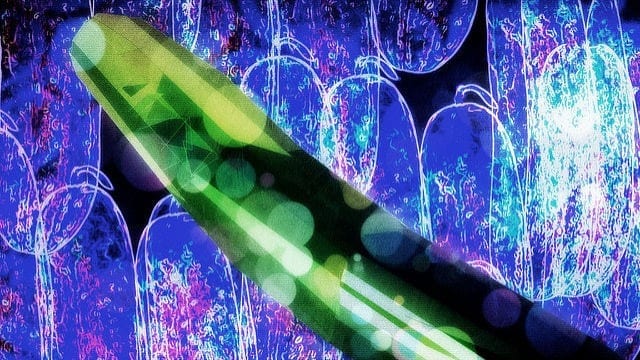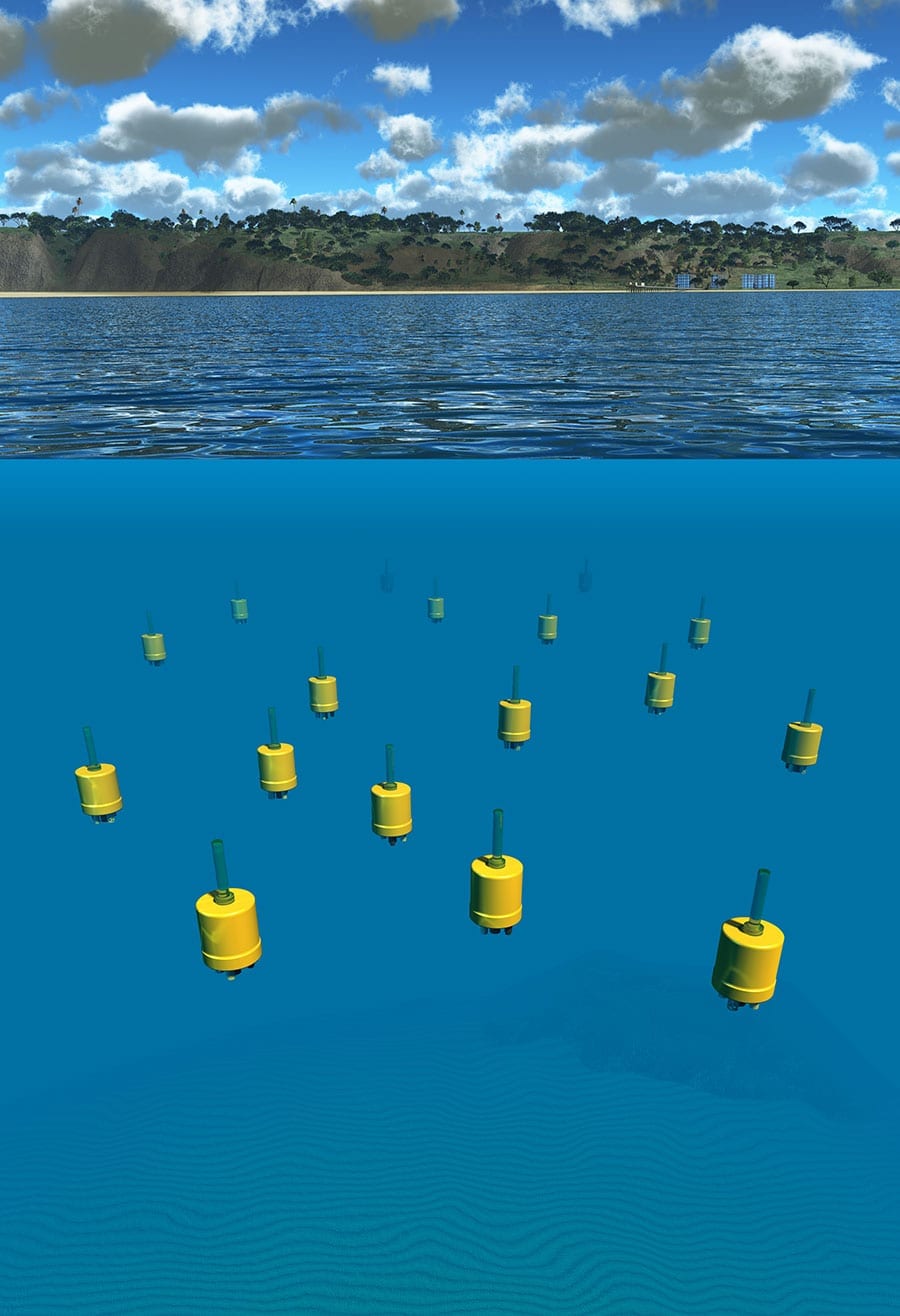
The classic Turing test evaluates a machine’s ability to mimic human behavior and intelligence. To pass, a computer must fool the tester into thinking it is human—typically through the use of questions and answers. But single-celled organisms can’t communicate with words. So this week in ACS Central Science, researchers demonstrate that certain artificial cells can pass a basic laboratory Turing test by “talking” chemically with living bacterial cells.
Sheref S. Mansy and colleagues proposed that artificial life would need to have the ability to interact seamlessly with real cells, and this could be evaluated in much the same way as a computer’s artificial intelligence is assessed. To demonstrate their concept, the researchers constructed nano-scale lipid vessels capable of “listening” to chemicals that bacteria give off. The artificial cells showed that they “heard” the natural cells by turning on genes that made them glow.
These artificial cells could communicate with a variety of bacterial species, including V. fischeri, E. coli and P. aeruginosa. The authors note that more work must be done, however, because only one of these species engaged in a full cycle of listening and speaking in which the artificial cells sensed the molecules coming from the bacteria, and the bacteria could perceive the chemical signal sent in return.
[osd_subscribe categories=’artificial-synapses’ placeholder=’Email Address’ button_text=’Subscribe Now for any new posts on the topic “INNOVATION”‘]
Receive an email update when we add a new INNOVATION article.
The Latest on: Two-Way Chemical Communication between Artificial and Natural Cells
[google_news title=”” keyword=”Two-Way Chemical Communication between Artificial and Natural Cells” num_posts=”10″ blurb_length=”0″ show_thumb=”left”]
via Google News
The Latest on: Two-Way Chemical Communication between Artificial and Natural Cells
- AI predicts tumor-killing cells with high accuracyon May 7, 2024 at 4:23 pm
Using artificial intelligence, scientists have developed a powerful predictive model for identifying the most potent cancer killing immune cells for use in cancer immunotherapies.
- Two studies aim to fight cancer with artificial cellson May 5, 2024 at 5:00 pm
This expertise will be key in carrying out the two new projects ... which are created from stem cells. These artificial cells contain specific elements, such as growth factors or anticancer drugs that ...
- Novel chemical tool for understanding membrane remodeling in the cellon May 3, 2024 at 9:30 am
Researchers describe a natural product-like molecule, Tantalosin, that inhibits interaction between two proteins in complexes that reshape membranes inside the cell. The findings lead to a deeper ...
- Novel chemical tool for understanding membrane remodelling in the cellon May 2, 2024 at 5:00 pm
In a study published in PNAS, Umeå researchers describe a natural product-like molecule, Tantalosin, that inhibits interaction between two proteins in complexes that reshape membranes inside the cell.
- This artificial sweetener can destroy gut bacteria and intestine cellson April 30, 2024 at 3:00 pm
An artificial sweetener called neotame can cause significant harm to the gut, my colleagues and I discovered. It does this harm in two ways. One, by breaking down the layer of cells that line the ...
- Cells Might Possess a Hidden Communication Systemon April 26, 2024 at 12:25 am
Cells constantly navigate a dynamic environment, facing ever-changing conditions and challenges. But how do cells swiftly adapt to these environmental fluctuations? A new Moffitt Cancer Center study, ...
- UNC researchers create artificial cells that act like living cellson April 23, 2024 at 5:00 pm
Researchers at University of North Carolina Chapel Hill have manipulated DNA and proteins to create artificial cells that look and act like the body’s natural ... this way for Study Finds ...
- Meet the Remarkable Similarities Between Top Artificial Intelligence (AI) and Oil Stocks That Could Be a Sign of What's to Comeon April 23, 2024 at 3:00 am
Artificial intelligence (AI ... Exxon was able to acquire Pioneer Natural Resources and expand production from offshore Guyana because it had the cash and balance sheet to take those risks.
- Artificial Cells Built with Programmable Peptide-DNA Cytoskeletonson April 22, 2024 at 4:59 pm
Little wonder, then, that scientists who build artificial cells hope to create synthetic cytoskeletons that act like natural cytoskeletons ... to program DNA in this way means scientists can ...
via Bing News









